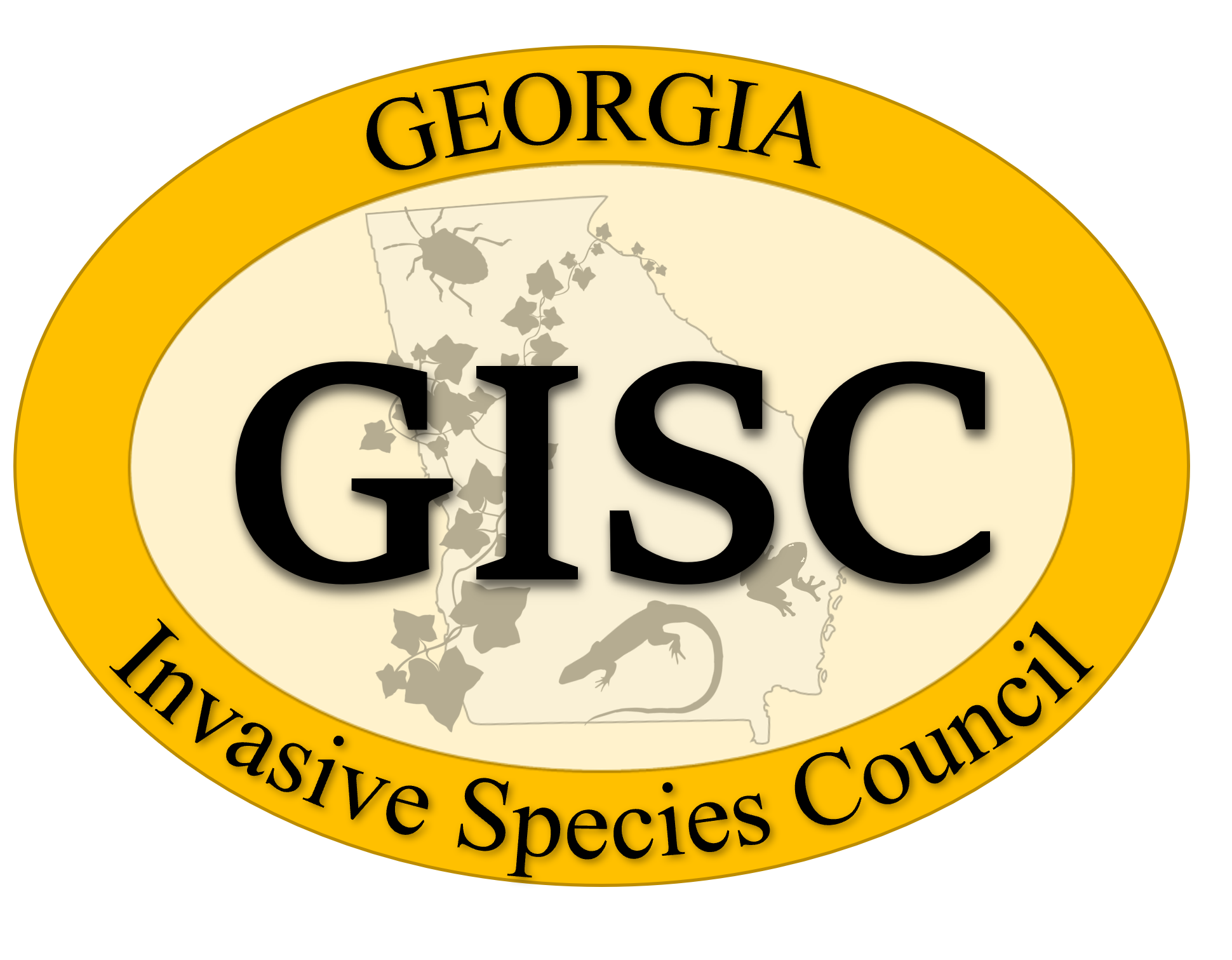GA-EPPC 2008 Annual Meeting Informative and Productive
By Brian Arnold
The GA-EPPC (Georgia Exotic Pest Plant Council) held its Annual Meeting for 2008 on September 19 at the Elachee Nature Science Center in Gainesville, Georgia. Over fifty people, including professionals involved in forestry, wildlife, natural resource management, and the horticulture industry, were present for the meeting. Attendees listened to presentations that addressed the severity of the environmental damage caused by invasive plants, as well as presentations regarding current and promising methodologies of management.
The Elachee Nature Science Center, an outdoor classroom used to teach environmental science to youth and adults, was a fitting location to hold the meeting, as the Center has been “pioneer like” in its ability to forge a cooperative effort with local government, utilities, and other prominent institutions, all for the purpose of controlling invasive plants.
Connie Gray, President of GA-EPPC and Ecological Resource Specialist at EcoAddendum, called the meeting to order and then managed a day filled with several noteworthy speakers, each of whom addressed areas vital to the subject of invasive plants.
Dr. Dave Moorhead, Professor of Forestry and Natural Resources at the UGA Warnell School of Forestry Resources, and Co-director of the Center for Invasive Species and Ecosystem Health, discussed the latest findings in regards to how invasive plants become established and spread, as well as progress in means of control. Dr. Moorhead’s presentation included a discussion on the severity in which several species have spread, reinforcing the Council’s need to be active.
Thomas Farmer, Director of Government Relations for The Nature Conservancy, discussed the current environment of governmental policy as related to control of invasive plants, and shared goals of the conservancy, as well as some of the obstacles that are hindering progress.
James Johnson, Forest Health Coordinator with the Georgia Forestry Commission, provided an update on the management of Cogongrass.
Dr. Chuck Bargeron, Information Technology Director at the UGA Center for Invasive Species and Ecosystem Health, informed attendees in how invasive species are being “mapped” and recorded, and most importantly, how attendees may contribute to this critical element of invasive plant management.
Nathan Klaus, Wildlife Biologist with the Georgia Department of Natural Resources Non-game Division, gave insight as to when fire is and isn’t useful, in controlling invasive plants and restoring habitat. Through Nathan’s presentation, attendees learned how simple disturbances of a natural environment predispose the respective environment to establishment of invasive plants.
Marty Langmaid of Monrovia Nurseries, representing the Georgia Green Industry Association’s Invasive Plant Task Force, shared how leading companies in the Green Industry are responding to the threat of invasive plants. Mr. Langmaid shared practices, for the purpose of controlling invasive plants, which are used by his company and others. Included among the respective practices, is a system that actually prevents the sale of a given plant in an area where it has been identified as being invasive.
Rick Barnes of Naturescapes represented the Georgia Green Industry Association along with Mr. Langmaid and briefly discussed issues as related to the Green Industry.
A portion of the day was utilized to discuss how the Council should go forward in addressing governmental policy, communication and fundraising. Members shared ideas and experiences in an effort to begin the process.
Methods of educating the public in order to increase awareness of and sensitivity to the problems associated with invasive plants, was addressed as well. Cynthia Taylor, of the Elachee Center, shared her experience in educating youth to discuss how the Councils educational efforts can accomplish its goals as well as aid schools in achieving curriculum requirements.
In hopes that the cooperative effort between the Elachee Nature Science Center and others, as mentioned above, will serve as a model for similar efforts, Ms. Taylor presented attendees with an overview of how the cooperative effort was forged.
The meeting concluded with a Field Session within the Center, conducted by Mr. Bargeron and Ms. Taylor.
Attendance at the Annual Meeting was encouraging, but considering the general consensus regarding the impact that invasive plants are having in both rural and urban environments, and subsequently upon quality of life, greater involvement is needed. Recognizing this, Ms. Gray stressed the need to increase both general membership and involvement of respective membership.
The meeting, by all accounts, was a success and future functions are being planned, including a workshop designed to educate landowners in methods of controlling invasive species within their property.
The workshop referenced above will likely be scheduled sometime early next year. Check the GA-EPPC website (www.gaeppc.org) in the near future for the date and location
